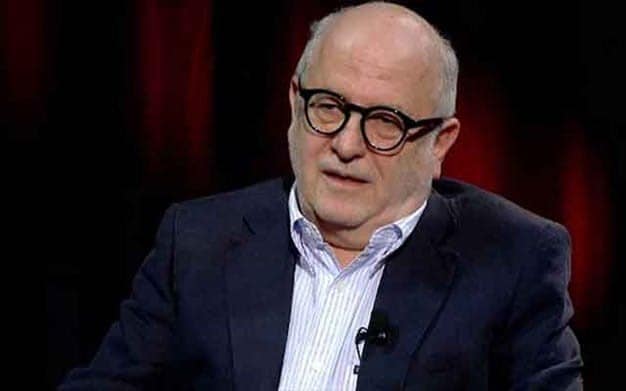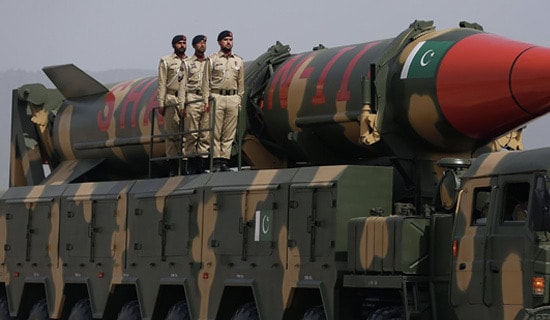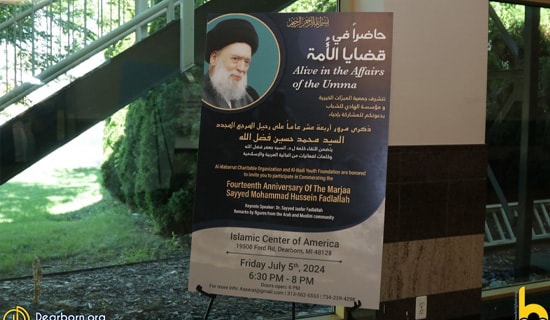In his October 23, 2024 column in the London-based Emirati daily Al-Arab, titled "Lebanon Is Not Hizbullah and Palestine Is Not Hamas," Lebanese journalist Khairallah Khairallah harshly criticized the Palestinian Authority (PA) and Lebanon's interim government for lacking the political courage to condemn Hamas' and Hizbullah's attacks against Israel. Such a condemnation, he says, could have prevented the tragic harm suffered by the people of Gaza and Lebanon.
According to Khairallah, the PA leadership "failed the test of the Al-Aqsa Flood" and acted irresponsibly when it refrained from unequivocally condemning Hamas' October 7, 2023 attack and when the PLO, headed by President Mahmoud Abbas, called Hamas leader Yahya Sinwar a "national hero" in the eulogy it issued after his death. Khairallah directed similar criticism at Lebanon's interim government, which he said took a hesitant stance on Hizbullah's full subservience to Iran and on its decision to attack Israel from South Lebanon. He clarified, however, that the Lebanese government – unlike the PA – has recently come to its senses and begun expressing "courageous positions" against the Iranian involvement in the country.
Khairallah stressed that there is need for a new Palestinian political leadership that can convince the world that "Palestine is not Hamas" and that not all Palestinians are masked and armed gunmen. Similarly, there is need for an official Lebanese statement declaring that Lebanon is neither synonymous with Hizbullah nor an Iranian colony.

Khairallah Khairallah (Image: Anfaspress.com)
The following are excerpts from Khairallah's article:[1]
"The [Palestinian] National Authority [i.e., the PA] failed the test of the 'Al-Aqsa Flood,' which could have been an opportunity to restore its legitimacy, demonstrate its ability to bear responsibility, and prove that its position on violence is a principled one that does not depend on the source of the violence.
"There are points of similarity between the PA and Lebanon's interim government, but there is also a difference between them, which could grow as events unfold against the backdrop of the Palestinian or Lebanese tragedy."
"The least that can be said about the PA, which grew out of the PLO, is that it has failed to fulfil its responsibility during this terrible time the Palestinian cause is experiencing. The PA, led by Mahmoud Abbas (Abu Mazen), was unable to deal with the significant event of the 'Al-Aqsa Flood,' [namely] with Hamas' attack on the Gaza border settlements [i.e., the Israeli localities in the eastern Negev] just over a year ago, which shook Israel's very foundations and plunged it into an existential crisis. The PA did not understand the implications of this [event] and failed to take a moment to clearly distinguish itself from Hamas and from the figure of Yahya Sinwar, [a man] whose courage – as an individual who decided to enter into war with the Israelis – is beyond doubt [but who acted] without a political horizon and without considering the possible consequences of his actions.
"The PA did not sufficiently distance itself from the man who caused the catastrophe, namely the erasing of Gaza and the expulsion of most of its residents. The PLO eulogized Sinwar and called him a 'national hero,' completely ignoring the fact that he was unfit for any leadership role due to his ignorance of the world and the region, and his belief that the 'Islamic Republic' of Iran would hasten to implement the theory of 'the unity of the fronts.'
"On October 7, 2023, Hamas killed about 1,200 Israelis and took some 250 others hostage. The PA should have emphasized from the outset that such an action was detrimental to the Palestinian cause, especially given the existence of a right-wing [Israeli] government led by Binyamin Netanyahu, which is willing to erase Gaza from the face of the earth. Such a situation requires political courage and long-term vision. [Instead of] yielding to the street and to impulses, [the PA should have] thought of practical measures to confront the plan of the Israeli right, which sees [Hamas' attack] as a good opportunity to eliminate the Palestinian cause and act with full force in the West Bank after [finishing with] Gaza."
"The PA failed the test of the 'Al-Aqsa Flood,' which could have provided it with an opportunity to restore its legitimacy, demonstrate that it can bear responsibility, and prove and that its position on violence is a principled one that does not depend on the source of the violence. [The PA could have demonstrated] that the true face of the Palestinian citizen is that of the young person or teenager in the 'Intifada of the Stones' of 1987-1988, which succeeded primarily due to its non-violent character.
"Simultaneously, the Lebanese interim government [likewise] failed when it took a hesitant stance on the Iranian decision to open the front [against Israel] in South Lebanon. Parliament Speaker Nabih Berri and Prime Minister Najib Mikati lacked the courage to clearly state from the start that Lebanon's official position is different from that of Hizbullah, whose Secretary-General, [Hassan] Nasrallah, began justifying the war of 'support for Gaza' before he was killed. An infant could realize that Lebanon was on a certain path to disaster, given Hizbullah's complete subservience to the Iranian decisions."
"Just like the PA, Nabih Berri and Najib Mikati also lacked courage. However, it should be recognized that Lebanon's interim government came to its senses after the Israeli war machine turned its attention to Lebanon and began to systematically destroy the country. Recently, Najib Mikati has taken courageous positions. He undoubtedly has the backing of Nabih Berri, who fully understands the implications of the Israeli plan that seeks to expel some of the Shi'ites from South Lebanon and to destroy Shi'ite villages and localities in the Bekaa.
"Now more than ever the Palestinians need a new political team that is in touch with what is happening in the world: a team comprising important figures – of whom there are hundreds inside Palestine and outside it – that understands how to confront the Israeli enterprise that is based on occupation. These [must be] individuals who can persuade the world that there is another [kind of] Palestinian, different from the masked and armed [gunman] whose image has been marketed by Hamas and by similar organizations that sprang out of the womb of the Muslim Brotherhood.
"As for Lebanon, now more than ever it needs an official position stating that Lebanon is not Hizbullah, nor is it an Iranian colony. Najib Mikati made the right move when he opposed the statements of Iranian Parliament Speaker Mohammad Bagher Qalibaf, who wanted to negotiate on Lebanon's behalf in the matter of implementing Resolution 1701. Lebanon is not Hizbullah, as Iran would like it to be, and Palestine is not Hamas, which, since its founding, has served the plan of the Israeli right.
"More than a year after the outbreak of the 'Al-Aqsa Flood,' it seems that the entire region is facing significant developments, especially as the confrontation between Israel and Iran, which both sides have long sought to avoid, [now] appears inevitable. Tehran's announcement that it had no connection to the targeting of Netanyahu's home in Caesarea, and that Hizbullah was responsible for this, is quite notable. The 'Islamic Republic' [of Iran] wanted Lebanon to bear the consequences of this attack [on Netanyahu's home], while all the Israeli parties began to be convinced that there is no choice but to take serious action against the Iranian expansionist plan, instead of getting distracted by conflicts with its proxies, whether in Iraq, Syria, Lebanon or Yemen.
"Do the Palestinians now understand that Hamas has eliminated their cause and that they need to salvage can still be saved of it? Do the Lebanese – including the Shi'ite population – understand that Hizbullah has never done anything but contribute to the destruction of their state and turn Beirut into an Iranian city overlooking the Mediterranean?"
[1] Al-Arab (London), October 23, 2024.








